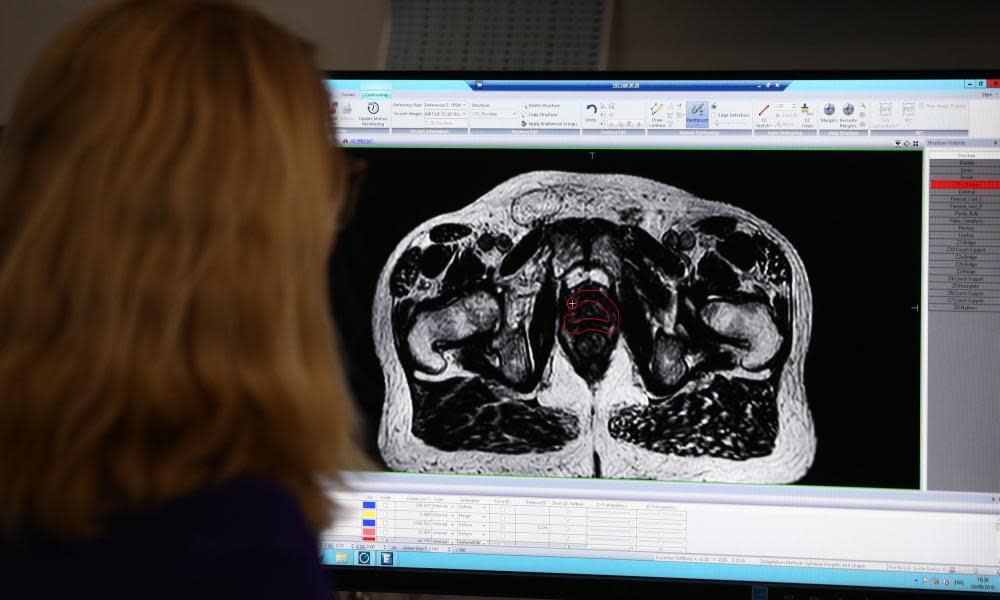Prostate cancer: radiotherapy could extend thousands of lives, study finds

Radiotherapy could increase the chances of survival for thousands of men with prostate cancer that has already spread by the time they are diagnosed, new research suggests.
Prostate cancer is the most common cancer to affect men in the UK. About 47,000 are diagnosed every year and around 11,500 die. Significant numbers of men are not diagnosed until the cancer has spread, which reduces their chances of survival.
The standard treatment for advanced or metastatic prostate cancer is hormone therapy drugs. “Until now, it was thought that there was no point in treating the prostate itself if the cancer had already spread because it would be like shutting the stable door after the horse has bolted,” said the lead researcher of the study, Dr Chris Parker of the Royal Marsden hospital in Surrey.
The trial, called Stampede and based at the Medical Research Council’s clinical trials unit at University College London, investigated what would happen among about 2,000 men with advanced cancer if they were given radiotherapy as well as drugs. Half were given standard treatment and half the standard treatment plus radiotherapy to the prostate.
Not everyone benefited. The radiotherapy did not help those whose cancers had spread more widely, but it did make a difference for those whose cancers had spread only locally into the nearby lymph nodes or bones. Of those men, 81% survived for three years, compared with 73% who did not get radiotherapy. The results were announced at the European Society for Medical Oncology conference in Munich and published online by the Lancet medical journal.
The improvement in survival may not seem large, but experts say it could benefit around 3,000 men in England and very many more worldwide. Radiotherapy also has the advantage of being a low-cost addition to their treatment.
“Our results show a powerful effect for certain men with advanced prostate cancer. These findings could and should change standard of care worldwide,” Parker said. “Unlike many new drugs for cancer, radiotherapy is a simple, relatively cheap treatment that is readily available in most parts of the world.”
Prof Charles Swanton, the chief clinician of Cancer Research UK, which funded the trial, said: “This is a monumental finding that could help thousands of men worldwide. Stampede is making great strides in finding new ways to treat prostate cancer with previous results from the trial already changing clinical practice. Data released previously has led to docetaxel chemotherapy now being part of the standard of care for many men with prostate cancer.
“Adding radiotherapy to current treatment shows clear benefit for this subgroup of men with prostate cancer. We now need to investigate whether this could also work for other types of cancer. If we can understand exactly why these men benefit from the additional radiotherapy treatment, we could hopefully use this approach to benefit even more patients.”

 Yahoo News
Yahoo News 
